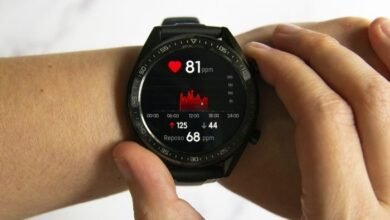Artificial Intelligence in Healthcare: Transforming Diagnosis and Treatment

Artificial Intelligence (AI) is revolutionizing nearly every industry, and healthcare is no exception. With its ability to process vast amounts of data quickly and accurately, AI is transforming how medical professionals diagnose, treat, and manage various health conditions. From improving patient outcomes to enhancing the efficiency of healthcare systems, AI is set to become an indispensable tool in modern medicine.
Did you know that AI algorithms can sometimes diagnose certain conditions more accurately than human doctors? For example, AI has shown to be more accurate than radiologists in detecting early-stage breast cancer through mammograms.
In this article, we’ll explore how AI is making waves in healthcare, its applications, benefits, and the potential challenges it faces.
1. How Is AI Changing the Way We Diagnose Diseases?
AI is significantly improving the accuracy and speed of diagnoses. Traditional diagnostic processes often rely on the expertise and experience of a healthcare provider, but AI brings an additional layer of support by analyzing large datasets to find patterns that might be overlooked by humans.
- Medical Imaging: AI-powered systems can analyze medical images like X-rays, CT scans, and MRIs to detect abnormalities such as tumors, fractures, and infections. For instance, AI algorithms in radiology can detect early signs of diseases like cancer, pneumonia, or neurological disorders with a high degree of accuracy.
- Pathology: AI can also be used to analyze pathology slides, looking for patterns in tissue samples that indicate the presence of diseases such as cancer or autoimmune conditions. It can process these samples much faster than traditional methods.
- Clinical Decision Support: AI can support doctors in decision-making by providing real-time analysis of patient data, suggesting potential diagnoses, and helping to identify the best course of action based on the latest medical knowledge and research.
2. What Are the Benefits of Artificial Intelligence in Healthcare in Diagnosis and Treatment?
The integration of AI in healthcare brings numerous benefits, both for patients and healthcare providers. Here are some of the key advantages:
- Improved Accuracy: AI can analyze data more accurately than human doctors in certain cases, reducing the risk of misdiagnoses and ensuring that patients receive the correct treatment.
- Faster Diagnosis: AI speeds up the diagnostic process, enabling quicker identification of medical conditions. This is especially important for conditions like cancer, where early detection can significantly improve the chances of successful treatment.
- Personalized Treatment Plans: AI can analyze a patient’s unique genetic makeup, medical history, and lifestyle factors to recommend personalized treatment plans. This tailored approach can lead to better outcomes and fewer side effects.
- Reduced Healthcare Costs: By improving the accuracy and speed of diagnoses and treatments, AI can reduce unnecessary tests, hospitalizations, and treatments, helping to lower healthcare costs in the long term.
- Enhanced Patient Care: With AI handling routine tasks like data entry and analysis, healthcare providers can focus more on patient care, building stronger relationships and delivering better outcomes.
3. How Does AI Help in Drug Discovery and Development?
AI is also playing a major role in the drug discovery process, which traditionally takes years and requires millions of dollars in investment. By using AI to analyze data from clinical trials, genetic research, and patient records, researchers can significantly shorten the timeline for discovering new drugs and therapies.
- Predictive Analytics: AI can predict which drug compounds will be most effective against a specific disease by analyzing vast amounts of biological data, significantly accelerating the process of drug discovery.
- Clinical Trials: AI can help identify the best candidates for clinical trials by analyzing patient data to match individuals with the most appropriate treatments. This helps in designing more efficient trials and ensuring that drugs are tested on the right patient populations.
- Drug Repurposing: AI can also be used to identify existing drugs that may be effective for new or rare diseases, helping to repurpose medications that have already been approved for use, thus saving time and costs in drug development.
4. How Is AI Enhancing Remote Monitoring and Telemedicine?
AI is increasingly being used in telemedicine and remote monitoring to provide continuous care for patients, especially those with chronic conditions. By integrating AI with wearable devices, mobile health apps, and remote monitoring tools, healthcare providers can track patients’ health in real time, offering interventions when necessary.
- Wearable Devices: AI-powered wearables, like fitness trackers or smartwatches, can monitor a patient’s heart rate, blood pressure, oxygen levels, and more, sending this data to healthcare providers. This allows for timely interventions if any abnormalities are detected.
- Virtual Health Assistants: AI-powered virtual assistants are being used to provide personalized care and guidance to patients. These virtual assistants can answer health-related questions, remind patients to take medications, and provide support for managing chronic conditions like diabetes.
- Chronic Disease Management: AI can be particularly useful in managing chronic diseases by constantly monitoring patients’ conditions and alerting healthcare providers if there are any signs of deterioration. For example, AI can predict when a patient with heart disease might be at risk of a heart attack or stroke, prompting early intervention.
5. What Are the Ethical Concerns of Artificial Intelligence in Healthcare?
While AI has the potential to revolutionize healthcare, there are several ethical concerns that need to be addressed:
- Bias and Fairness: AI systems are only as good as the data they are trained on. If the data used to train an AI system is biased or incomplete, it could lead to inaccurate or unfair treatment recommendations, especially for underrepresented groups.
- Data Privacy: The use of AI in healthcare requires access to vast amounts of patient data. Protecting this sensitive information from breaches and ensuring that patients’ privacy is respected is a critical issue.
- Accountability: If an AI system makes an error in diagnosis or treatment, it can be difficult to determine who is responsible. Clear guidelines are needed to ensure that healthcare providers and AI developers are accountable for their work.
- Trust and Acceptance: Some patients may be hesitant to trust AI-powered systems in healthcare, preferring human doctors over machines. Overcoming this trust barrier is essential for the successful integration of AI in healthcare.
6. What is the Future of AI in Healthcare?
The future of AI in healthcare looks incredibly promising. As AI continues to evolve, it is likely to play an even greater role in transforming diagnosis, treatment, and patient care. Here are a few exciting possibilities for the future:
- AI-Driven Personalized Medicine: In the future, AI could help develop even more personalized treatment plans based on a patient’s genetic makeup, lifestyle, and preferences, leading to more effective and less invasive treatments.
- Real-Time Health Monitoring: As AI-powered wearables and sensors become more advanced, healthcare providers may be able to continuously monitor patients’ health and intervene in real time, preventing emergencies before they occur.
- AI in Surgery: AI may eventually assist surgeons in performing complex surgeries with greater precision. Robotic surgery systems, guided by AI, are already being tested and used in some areas, improving outcomes and reducing recovery times.
- Global Healthcare: AI could help provide healthcare to underserved regions of the world by offering remote consultations, diagnosing diseases, and even guiding treatments. This could have a profound impact on global health, particularly in low-resource settings.
Conclusion: AI in Healthcare – A Revolution in the Making
Artificial Intelligence is reshaping healthcare, offering new opportunities for diagnosis, treatment, and patient care. Did you know that AI has the potential to save $150 billion in healthcare costs annually by improving efficiencies and patient outcomes?
By automating routine tasks, analyzing complex data, and enabling personalized care, AI is improving the healthcare experience for both patients and providers. While there are challenges to address, the potential benefits of AI in healthcare are immense, and as the technology continues to evolve, it will undoubtedly play an even more pivotal role in shaping the future of medicine.




